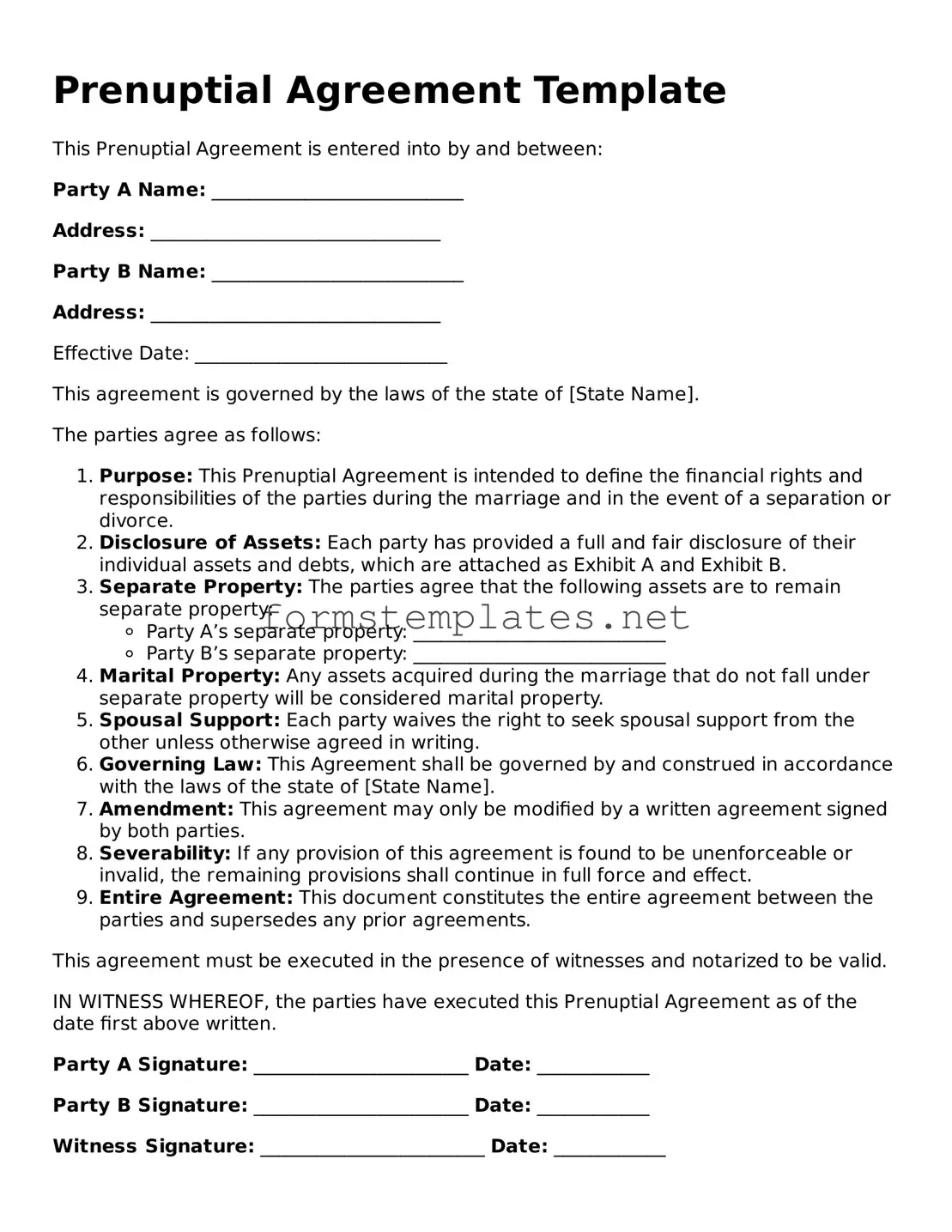Attorney-Verified Prenuptial Agreement Form
A Prenuptial Agreement is a legal document created by two individuals before they get married, outlining the division of assets and financial responsibilities in the event of a divorce. This agreement can help protect both parties and clarify expectations, making it a valuable tool for couples. Understanding its purpose and components can lead to a more secure and harmonious partnership.
Open Editor Now

Attorney-Verified Prenuptial Agreement Form
Open Editor Now

Open Editor Now
or
⇓ PDF Form
Your form still needs attention
Finalize Prenuptial Agreement online — simple edits, saving, and download.